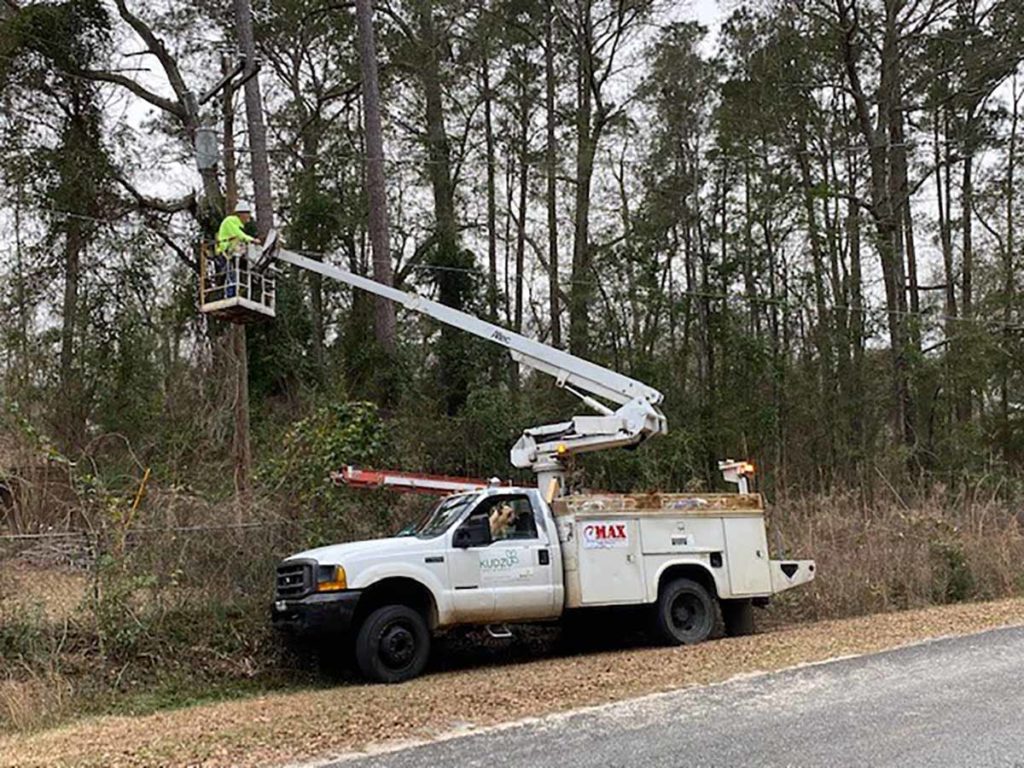
Leaders of a Georgia electric cooperative that received a $25 million rural broadband grant from American Rescue Plan Act funds say they feel part of a movement that harkens back to the co-op’s original reason for being: to serve the unserved.
“We are bringing fiber internet service of up to 1 gigabit to areas that have no service at all,” said Wayne Livingston, president and CEO of Diverse Power.
“We’re going to go to the last-mile folks who didn’t get any service from the big providers, like electricity in the 1930s.”
The Lagrange-based electric co-op is one of seven in the state that won a total of $130 million in grants from ARPA funds to build broadband that will serve at least 65,000 across Georgia. Congress passed the $1.9 trillion bill in March of last year to provide COVID-19 relief.
Diverse Power and its telecom subsidiary, Kudzu Networks, will deploy broadband fiber across approximately 46% of its service territory to reach 4,769 unserved homes in five counties. The project is expected to take four years and cost $39 million.
Other Georgia co-ops that got grants for broadband builds were:
• Altamaha EMC, $5.9 million to serve 2,171 customers.
• Central Georgia EMC, $25 million to serve 19,996.
• Flint Energies, $25 million to serve 10,659.
• Ocmulgee EMC, $19 million to serve 9,000.
• Southern Rivers Energy, $15.6 million to serve 10,674.
• Washington EMC, $13.2 million to serve 6,500.
Five other Georgia co-ops—Amicalola, Colquitt, Grady, Oconee and Sumter EMCs—supported applications that won a total of $172 million from ARPA funds to connect another 62,000 customers.
“Rural communities have long waited for broadband service, which is essential to compete in today’s digital world,” said Dennis Chastain, president and CEO of the Georgia Electric Membership Corp. based in Tucker.
“The pandemic brought the issue to the forefront and shined a light on the disparities between communities, businesses and people with and without broadband access.”
Diverse Power, among the first electric co-ops in the state to enter the broadband business, has already begun construction for the area covered by this grant, which will help make the service affordable, Livingston said.
“The main reason we went after this is the need our members have for broadband,” he said. “They are so grateful that we are doing this for them. It’s good for our co-op, and it’s fun.”
To learn more about growing opportunities for co-op broadband, check out a recent episode of LiveWire, NRECA’s new video series.
Cathy Cash is a staff writer for NRECA.